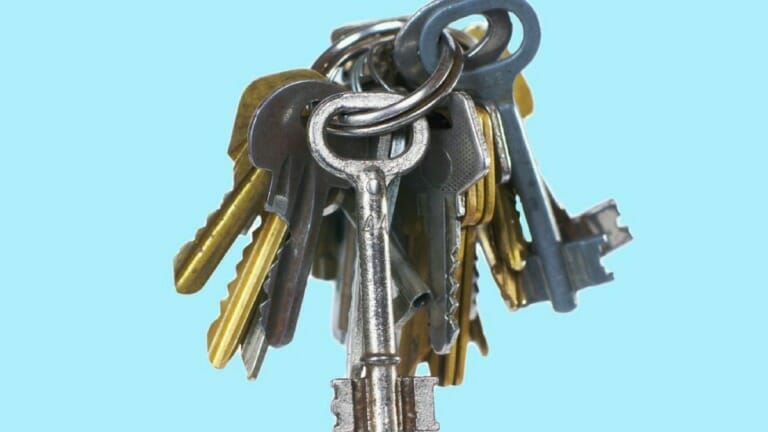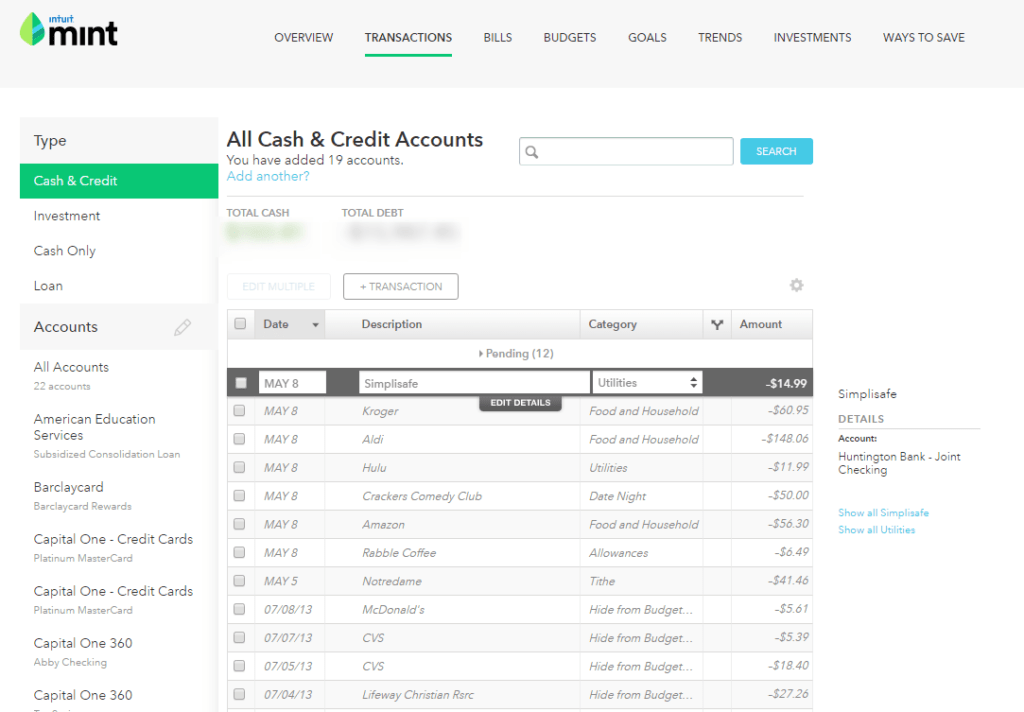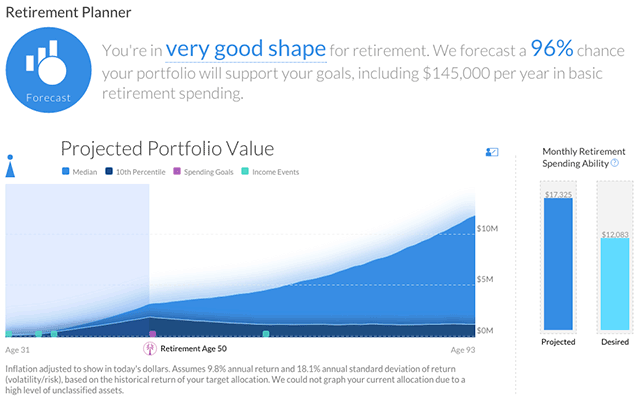Early retirement is having a bit of a moment in the world of personal finance. There are entire sites and subreddits dedicated to teaching people how to retire early. And by early, people aren’t trying to retire at 55 — more like 35.
But is it realistic to retire at 35? Some of us don’t even have our student loans paid off by the time we’re 35. And how much sacrifice is required to retire some three decades ahead of the vast majority of our peers? How many of us are willing to live with our parents or roommates well into our twenties and deny ourselves things like vacations and going out to dinner?
What are the financial steps we can take to achieve early retirement? Are there secrets we’ll have to discover, stuff rich people don’t want the rest of us to know?
And do we really want to be retired for four, five or more decades? That’s a lot of time to fill.
Love your job or hate it; a job does fill up our time, give us a routine, a sense of purpose and identity, and in many cases, some social interaction. How do you find those things without a job?
If you’ve wondered how to retire early, you’ve probably heard of today’s guest. The FIRE movement has its own celebrities, and none of them is more prominent than Mr. Money Mustache, the OG of the early retirement movement.
Mr. Money Mustache is here today to answer all of these questions and more.
The American Dream
Mr. Money Mustache didn’t retire because he was making so much money from his blog. He had actually been retired for six years before he started writing. The blog was born when he looked around at his friends who had good jobs but were still living paycheck to paycheck.
They bought into what has long been sold as the American Dream; go to college, get a job, buy a house, fill that house with as much stuff as it can hold (and when it can’t hold anymore, rent a storage unit), have some kids, and get stuck in an unfulfilling job, dreaming of freedom that will always be out of reach.
Retire, maybe at 65 if you’re lucky, and live out your days, just kind of existing, hoping your money will outlast you. The best years of your life long past. But what if you could be retired by thirty?
Why is not spending so hard? It’s largely cultural. We believe it’s reasonable to borrow money for a car, to consider shopping a hobby, to order takeout every single day for lunch at work. We think it’s normal because that’s all we see.
There aren’t any frugal people represented in the media unless you count those coupon shows but those people aren’t the norm any more than a Kardashian is a norm.
But just because everyone is doing it, doesn’t mean it’s the right thing to do or that you have to do it too.
MMM started the blog out of frustration; he wanted to show them, and now us, that they could do what he did. And an empire began.
How to Retire Early
There are certainly some sacrifices involved if you want to achieve early retirement, but actually doing it isn’t particularly complicated.
Do Some Learning
The American education system doesn’t do much to address personal finance. And if your parents didn’t teach you good financial habits, you’ll have to do some learning on your own. Give personal finance a regular place in your day to day life.
That doesn’t mean you have to think about money all the time. We have always advocated a set it and forget it philosophy when it comes to money.
But when you allow personal finance into your life by reading books, blogs, and magazines about it, listening to podcasts about it, and discussing it with the people in your life, it’s always on your radar. Keeping money at the forefront helps you make better money decisions.
We have a list of books we recommend in our Toolbox, and MMM recommends The 4 Pillars of Investing, any books written by Vanguard founder John Bogle, and any books written by and about Warren Buffett.
Keep Expenses Low
A big part of how to retire early is keeping expenses low, really low. How low? You need to save half of your income. Obviously, you aren’t going to achieve that by clipping coupons. You need to reduce your housing costs greatly.
You don’t have to live in a shack to make this happen. Americans buy too much house. The average house size in the 1950s was 983 square feet. The average household size was 3.37 people.
In the 2000s, the average house size was 2,300 square feet, while the average household size was 2.63 people. Do you see the odd inverse? We are buying bigger homes to house fewer people!
Pay off your home. This seems so out of reach for many people, but remember, you shouldn’t be living in a 3,000 square foot place that you only put 20% down on. You should live in a modest, affordable home. Easier to pay off.
Cars are another biggy. It certainly is a convenience to have two vehicles if there are two adults in the household, but is it absolutely necessary? What if one of the cars was totaled and no replacement was available for a week? Would one of you just stay home from work, or would you figure out a solution? Like many things in life, if you had to do it, you would find a way.
Saving this way goes against societal norms for sure. If you’re saving this much, you aren’t living in a 3,000 square foot McMansion, you aren’t driving a brand new car, and you aren’t eating only the most expensive, hand-harvested, organic quinoa from Whole Foods.
You are living in an affordable home, near your place of work. Because you’re so near to work, you don’t have a car at all. You bike or use public transit if you’re lucky enough to have it.
Consider the Cost of Living
The high paying jobs are in cities, and cities have a higher cost of living than less urban areas. But part of retiring early will depend on keeping your living costs as low as you can.
That may mean finding a job that allows you to work remotely so you don’t have to live in a city or living far enough outside that city that you can lower your cost of living while not making your commute unbearable.
When you do reach your retirement age, you can move to a low-cost area and reduce your living expenses even further.
Find Real Happiness
But how will you be happy if you aren’t always buying stuff? Because stuff does not make us happy. It’s true. Science backs me up. It’s experiences that provide real and lasting happiness.
And not just the big, exciting (i.e., expensive) experiences like European vacations either. Think back to your happiest childhood memories. Mine are things like nature walks with my grandmother, not trips to amusement parks or toys I got as presents. Those walks didn’t cost anyone anything.
Reconsider how you think of money.
Money is not to buy stuff. Money is to buy freedom.
For every piece of “stuff” you buy, you are subtracting from your freedom. More working, more commuting, more dealing with annoying co-workers, just so you can have that new end table you could have resisted in Target but didn’t.
You’ll also need to embrace some discomfort. You can ride your bike to work when it’s thirty degrees; you simply don’t want to. Do something because it’s hard, then it becomes a victory. And overcoming discomfort is a victory, and victory makes us happy.
How do you deal with friends who only want to socialize in ways that cost a lot of money? First, try to find some friends who value the things you like to do, like financial friends. Find a club devoted to your hobby, running or knitting or rock climbing, whatever you want to do. Now you have a pool of people to do those things with.
Or just step up. You decide what the group is doing and announce it. Make your own pizza party at your place. It’s more fun and cheaper than going out to dinner. There may even be those among your friends who are also grateful for the chance to socialize without blowing the budget but are just embarrassed to say so.
Consuming less is a lifestyle change but one that pays off and not just in terms of money.
Investing
Surely, this must be the secret trick. MMM has some kind of secret investing formula that allows for all this. Nope. He invests in low-cost index funds with
He’s too busy riding his bike up Colorado’s scenic mountains to be continually monitoring his investments and actively trading. ETFs allow you to set it and forget it.
Consider getting into the landlord business. Owning rental property doesn’t mean you have to do landlord stuff. Turn-key real estate allows you to earn the passive income
If you don’t have the money for a
Even though you won’t be able to access it for a long time without penalty, part of your retirement plan should include long-term, tax-advantaged retirement accounts like an IRA, HSA, and 401k. Those kinds of investment accounts are a big part of your savings plan.
Automate Things
You can automate nearly all aspects of money management and you should. Dealing with money can be time-consuming, and for most of us, it’s not particularly fun. So let technology take the strain.
Mint allows you to automate the budgeting process once you set up your account and allocate your money. Investing platforms like
Most bills can be set up for autopay either through the vendor or through your bank. Auto-paying bills ensure that you never make a late payment, which can hurt your credit score and result in late fees.
Get our best strategies, tools, and support sent straight to your inbox.
How Much Money Do I Need?
Okay, you’re sold, fantastic! But how much do you need to actually do this? Take what you spend a year, say $25,000, and multiply it by 25. That gives you $625,000. That’s how much you need to have in retirement savings.
You can also use the 4% rule. It means that once you have $X (depending on a few factors), 4% a year is a safe withdrawal rate. You can use a retirement calculator to play around with ages and numbers.
Retirement isn't the end of work. It's the end of mandatory work.
Tweet ThisWhatever amount you come to isn’t all of the money you’ll have for the rest of your life. The money you don’t spend each year remains invested where compounding interest is working its magic.
You’re not starting with a number and spending down your nest egg until it’s gone. The money continues to grow, even in the case of early retirement.
Keeping Track
Manage your cash and optimize your investments in one place. With Personal Capital, you can analyze your 401k to diversify your holdings better and reduce fees. Andrew had no idea he was paying over 1% of his assets in fees every year, but with Personal Capital’s help, he was able to get it below 0.03%.
Once you have all of your accounts linked, you can also leverage their Retirement Planner to plot out exactly what your retirement would look like. Using a Monte Carlo simulation, they determine how likely it is that you’ll reach the level of income in retirement that you’re hoping for.
Andrew has been using Personal Capital since 2013 and hasn’t found a better free online tool for building and managing wealth.
Healthcare
Health insurance may be one of the most significant expenses early retirees face. You may be years away from Medicare eligibility, and healthcare in the U.S. is among the most expensive in the world. This can really hamper your early retirement plan. I don’t have a solution. Until we establish universal healthcare, things won’t change.
You can shop for the best healthcare plans at PolicyGenius and consider using your high deductible plan as another one of your retirement accounts.
What Next?
Great, you spent time learning how to retire early, followed the simple steps, and you did it! What the hell are you supposed to do now?!
Whatever you want. You get to decide what retirement means to you.
You’ll probably end up doing some form of work. Early retirement doesn’t necessarily mean the end of paid work; it’s just the end of mandatory work or at least full-time work.
Maybe you have a hobby that you’d like to turn into a business. Perhaps you’d like to go back to school. Or maybe you’ve had enough of book learning and would like to learn how to do something with your hands like building houses, growing plants, or creating water features. If your cash flow is a little tight, start a side hustle, or get a part-time job.
But what if you spent all this time and effort to figure out how to retire early and you find that after a few years you hate it? Go back to work. You can just embrace the FI part and not the RE part, Financial Independence, Retire Early.
No one said you couldn’t. But it will be on your terms; you can work part-time, you can work in a low-paid field that you have an interest in, or you can work on a freelance basis.
Show Notes
Mr. Money Mustache: Everything you need to know to retire early.







